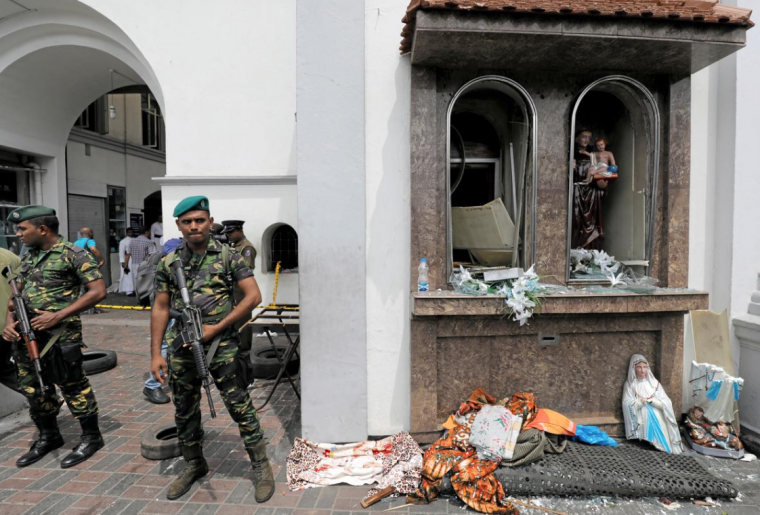Death toll from Easter attacks in Sri Lanka climbs to 290

The death toll from multiple explosions at luxury hotels and churches in Sri Lanka on Easter Sunday has risen to 290.
It is not yet known who carried out the attacks, which tore through three churches in in Kochchikade, Negombo and Batticaloa as they were packed full of worshippers gathered for Easter Sunday services.
Sri Lankan Prime Minister Ranil Wickremesinghe visited one of the churches targeted on Sunday.
He said the attacks were "an attempt to make the country and its economy unstable" after ordering an urgent investigation which has so far led to the arrest of 24 people.
Statements on Sunday suggested the government had been previously alerted to the threat of an attack.
Speaking to reporters late on Sunday night, Mr Wickremesinghe said that the government had been "aware of information regarding a possible attack".
"We must look into why adequate precautions were not taken. Neither I nor the ministers were kept informed," he said.
He added: "First and foremost we have to ensure that terrorism does not lift its head in Sri Lanka."
Mano Ganesan, Minister of National Integration, tweeted: "A week before, my Ministerial Security Division (MSD) officers had been warned by their Division on two suspected suicide bombers in Colombo targeting politicians."
Sunday's attacks have been condemned by religious leaders.
Pope Francis used his Easter Urbi et Orbi address to speak of his "sadness and pain" at the loss of life.
"I wish to express my heartfelt closeness to the Christian community [of Sri Lanka], wounded as it was gathered in prayer, and to all the victims of such cruel violence," he said.
"I entrust to the Lord all those who have tragically perished, and I pray for the injured and all those who suffer as a result of this tragic event."
The Archbishop of Canterbury, the Most Rev Justin Welby, said: "On this holy day, let us stand with the people of Sri Lanka in prayer, condolence and solidarity as we reject all violence, all hatred and all division."
Harun Khan, the Secretary General of the Muslim Council of Britain said the "terrorists speak for no one but themselves".
"It takes a particular kind of depravity to target worshippers on their holiest days. My thoughts and prayers to the victims and their loved ones," he said.











